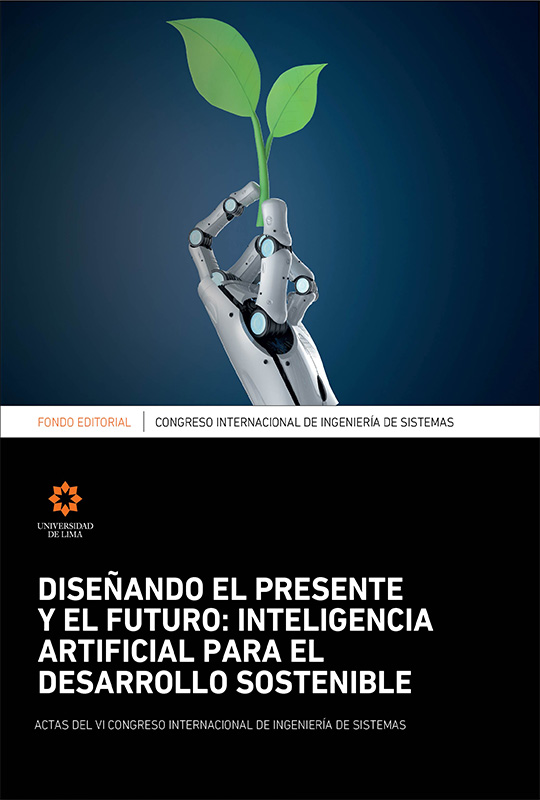Neural Network Energy Control of Combustion Engines for Automotive Software Applications
DOI:
https://doi.org/10.26439/ciis2023.7083Palabras clave:
neural network control, energy generation, software developmentResumen
This article focuses on the application of neural network control for energy generation in an internal combustion engine. A two-layer neural network architecture was developed and tested using laboratory data obtained from a bench dynamometer to accurately identify the network’s parameters. The neural network is employed to establish an accurate correlation between the magnitude of actuation signals and the fundamental variables responsible for regulating energy generation within the system. The control system utilizes a gain-scheduling routine to adjust the controller’s gain, which attenuates the increment for low error values. An energy generation model is presented to design a virtual engine, enabling accurate control strategies. To ensure the safe operation of the engine, a safety routine is implemented to prevent the control action from assuming values that could negatively impact the vehicle’s response to the driver’s commands. The developed controller demonstrates a low average absolute error in steady-state conditions and a low average rise and fall time during transient states, ensuring both drivability and good engine performance. To enable the application in software, in structures such as hardware-in-the-loop simulation and engine control units, systems are implemented to ensure real-time operations.
Descargas
Referencias
Eriksson, L., & Nielsen, L. (2014). Modeling and control of engines and drivelines (1st ed.). John Wiley & Sons.
Gordon, D. C., Norouzi, A., Winkler, A., McNally, J., Nuss, E., Abel, D., Shahbakhti, M., Andert, J., & Koch, C. R. (2022). End-to-end deep neural network based nonlinear model predictive control: Experimental implementation on diesel engine emission control. Energies, 15(24), 9335. https://doi.org/10.3390/en15249335
Guzzela L., & Onder, C. (2010). Introduction to modeling and control of internal combustion engine systems (2nd ed.). Springer Science & Business Media.
Ineza Havugimana, L. F., Liu, B., Liu, F., Zhang, J., Li, B., & Wan, P. (2023). Review of artificial intelligent algorithms for engine performance, control, and diagnosis. Energies, 16, 1206. https://doi.org/10.3390/en16031206
Moriyasu, R., Nojirie S., Matsunaga, A., Nakamura, T., & Jimbo, T. (2019). Diesel engine air path control based on neural approximation of nonlinear MPC. Control Engineering Practice, 91, 104114 https://doi.org/10.1016/j.conengprac.2019.104114
Moskwa, J. J. (1988). Automotive engine modeling for real time control [Doctoral dissertation, Massachusetts Institute of Technology]. http://hdl.handle.net/1721.1/14617
Pandey, V., van Dooren, S., Ritzmann, J., Pla, B., & Onder, C. (2021). Variable smoothing of optimal diesel engine calibration for improved performance and drivability during transient operation. International Journal of Engine Research, 22(6), 1888-1895. https://doi.org/10.1177/1468087420918801
Schäuffele, J., & Zurawka, T. (2016). Automotive software engineering: Principles, processes, methods, and tools (2nd ed.). SAE International.
Shahbaz, M. H., & Amin, A. A. (2023). Design of hybrid fault-tolerant control system for air-fuel ratio control of internal combustion engines using artificial neural network and sliding mode control against sensor faults. Advances in Mechanical Engineering, 15(3). https://doi.org/10.1177/16878132231160729
Vignesh, R., & Ashok, B. (2021). Deep neural network model-based global calibration scheme for split injection control map to enhance the characteristics of biofuel powered engine. Energy Conversion and Management, 249, 114875. https://doi.org/10.1016/j.enconman.2021.114875
Wang, J., Hou, X., Du, C., Xu, H., & Zhou, Q. (2020). A moment-of-inertia-driven engine start-up method based on adaptive model predictive control for hybrid electric vehicles with drivability optimization. IEEE Access, 8, pp. 133063-133075. https://doi.org/10.1109/ACCESS.2020.3010528
Wong, P. K., Huang, W., Vong, C. M., & Yang, Z. (2020) Adaptive neural tracking control for automotive engine idle speed regulation using extreme learning machine. Neural Computing and Applications, 32, 14399-14409. https://doi.org/10.1007/s00521-019-04482-5
Zhao, G., Long, Y., Ding, S., Yang, L., Song, E., & Ma, X. (2020). Study of advanced control based on the RBF neural network theory in diesel engine speed control. SAE International Journal of Engines, 13(1), 63-75. https://doi.org/10.4271/03-13-01-0005






